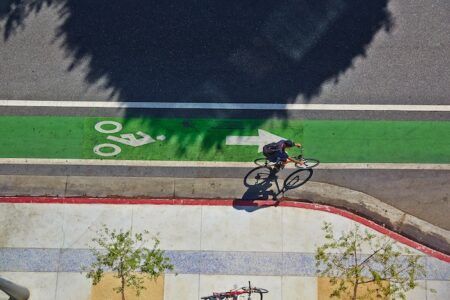UK-based product and software development consultancy Cambridge Consultants has unveiled what it describes as the world’s smartest parking lot, with the system using artificial intelligence (AI) to recognize cars and spaces without the need for expensive physical infrastructure.
Developed entirely at Cambridge Consultants, the Goldeneye system uses machine vision and deep learning technologies, along with the existing security camera and networking infrastructure on-site, to continuously monitor the availability of parking bays.
Goldeneye uses 12 cameras to monitor 430 parking spaces, and with digital signs at the entrance to the site, the system alerts a 500-strong workforce and visitors to where they can quickly find a parking space.
Goldeneye uses AI to ‘teach itself’ and is able to monitor cars and spaces in a range of lighting and weather conditions, day and night, with the system proving its capabilities during this winter’s severe snowfalls in the UK.
Traditional parking monitoring systems use sensors for each individual parking space, which can be expensive to maintain, and often the business case to justify a large investment in bay sensors does not exist.
Automatic license plate recognition (ALPR) systems are very effective. However, they do not offer the parking facility owner any greater information than vehicles’ entry and exit from the parking lot and stay time. Goldeneye offers a cost-effective way to scale parking lot monitoring via the cloud, making it possible for users to choose their parking location and reserve and pay for a parking spot online while also allowing them to continually monitor their car.
Goldeneye is enabled by the Blackfin Low-Power Imaging Platform from the USA-based semiconductor company Analog Devices Inc. (ADI), and because the system is founded on machine vision it can readily be extended to include new use cases, including occupancy monitoring per vehicle, vehicle identification, and identification of pedestrian flows.
As well as being used in parking lots, the technology is capable of enhancing wider smart city applications and could be harnessed to monitor traffic, crowd safety, pedestrian or cyclist analytics, or a range of other applications.
“We’re now at a point where deep learning can move out of the research fields, into the real world, and we’re excited to be pioneering this world first for cities of the future,” said Thomas Carmody, head of transport and infrastructure at Cambridge Consultants.
“What’s truly remarkable about Goldeneye is the fact that the system taught itself to identify and operate a parking lot. It does this without the need for any additional computing equipment. This is a further example of how we are disrupting markets with breakthrough technologies and there’s much more to come.”




